| Title | Interferon-gamma limits the availability of iron for intramacrophage Salmonella typhimurium. |
| Publication Type | Journal Article |
| Year of Publication | 2008 |
| Authors | Nairz, M, Fritsche, G, Brunner, P, Talasz, H, Hantke, K, Weiss, G |
| Journal | Eur J Immunol |
| Volume | 38 |
| Issue | 7 |
| Pagination | 1923-36 |
| Date Published | 07/2008 |
| ISSN | 0014-2980 |
| Keywords | Acute-Phase Proteins, Animals, Antimicrobial Cationic Peptides, Cation Transport Proteins, Cell Line, Ferritins, Heme Oxygenase (Decyclizing), Hepcidins, Interferon-gamma, Iron, Lipocalins, Macrophages, Mice, Nitric Oxide, Oncogene Proteins, Salmonella typhimurium, Transferrin, Tumor Necrosis Factor-alpha |
| Abstract | In stimulating effector functions of mononuclear phagocytes, IFN-gamma is of pivotal importance in host defense against intramacrophage pathogens including salmonellae. As the activity of IFN-gamma is modulated by iron and since a sufficient availability of iron is essential for the growth of pathogens, we investigated the regulatory effects of IFN-gamma on iron homeostasis and immune function in murine macrophages infected with Salmonella typhimurium. In Salmonella-infected phagocytes, IFN-gamma caused a significant reduction of iron uptake via transferrin receptor 1 and resulted in an increased iron efflux caused by an enhanced expression of the iron exporter ferroportin 1. Moreover, the expression of haem oxygenase 1 and of the siderophore-capturing antimicrobial peptide lipocalin 2 was markedly elevated following bacterial invasion, with IFN-gamma exerting a super-inducing effect. This observed regulatory impact of IFN-gamma reduced the intracellular iron pools within infected phagocytes, thus restricting the acquisition of iron by engulfed Salmonella typhimurium while concomitantly promoting NO and TNF-alpha production. Our data suggest that the modulation of crucial pathways of macrophage iron metabolism in response to IFN-gamma concordantly aims at withdrawing iron from intracellular Salmonella and at strengthening macrophage immune response functions. These regulations are thus consistent with the principles of nutritional immunity. |
| URL | http://www.ncbi.nlm.nih.gov/pubmed/18581323 |
| DOI | 10.1002/eji.200738056 |
| Alternate Journal | Eur. J. Immunol. |
| PubMed ID | 18581323 |

